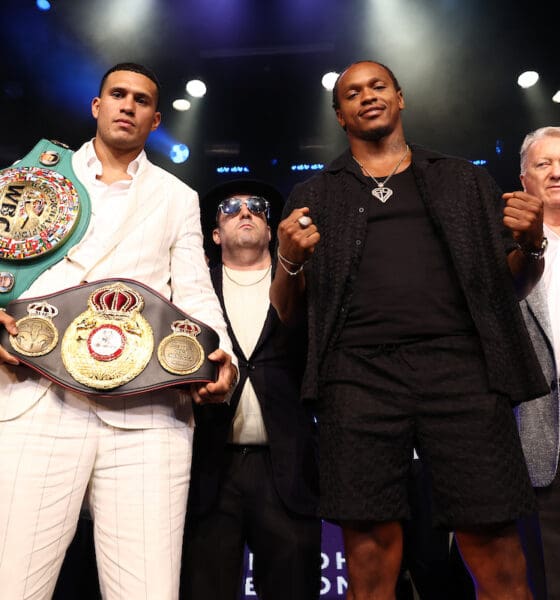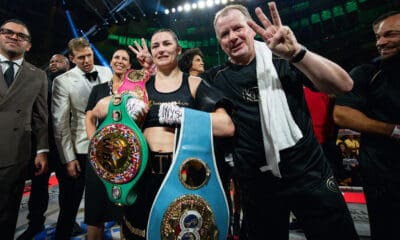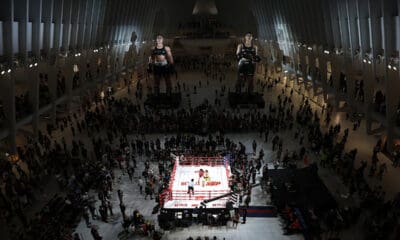-
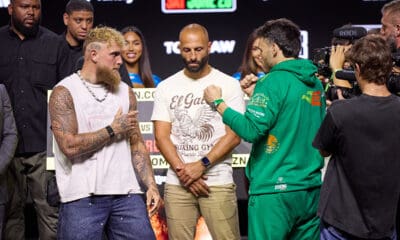
 Boxing
BoxingLove Them Or Hate Them, Jake Paul and Julio Cesar Chavez Jr. Are Back
Critics blast them. Fans adore them. Their boxing pedigrees and backgrounds couldn’t be more different. When Jake Paul and Julio Cesar Chavez Jr. share a ring...
-
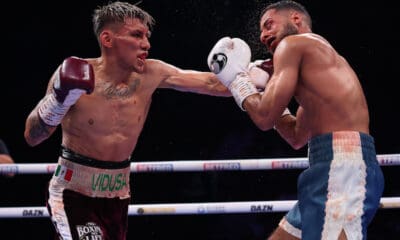
 Boxing
BoxingFrancisco Rodriguez Jr. Upsets Galal Yafai In Bloody Good Battle
How many more times will Matchroom Boxing promoter Eddie Hearn underestimate a determined Mexican warrior? Francisco Rodriguez Jr. of Monterrey, Mexico (40-6-1, 27 KOs) bloodied and...
-
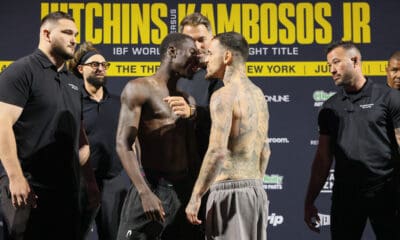
 Boxing
BoxingWeekend Boxing Schedule: Hitchins vs Kambosos Jr. Top Pick
Your weekend boxing schedule for June 13 and 14 is light on action. Enjoy the weekend and call your dad on Father’s Day if you’re lucky...
-
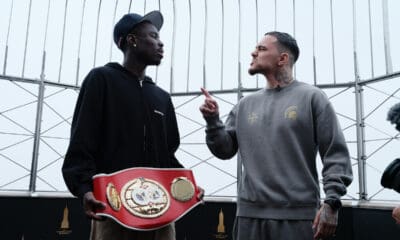
 Worldwide
WorldwideFiery First Faceoff Between Hitchens and Kambosos Jr.
Who doesn’t enjoy a little fire with their boxing face-offs? Richardson Hitchins and George Kambosos Jr. brought some heat in a fiery face-off tradition at the...
-
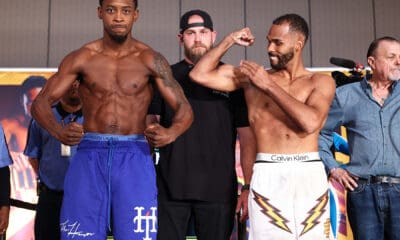
 Australia
AustraliaWeekend Boxing Schedule: Keyshawn Davis Loses Title
The boxing schedule is packed this first weekend of June, and that’s a blessing since the weekend’s most anticipated fight featuring Keyshawn Davis isn’t taking place....
-
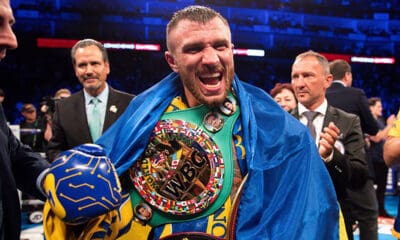
 Boxing
BoxingVasiliy Lomachenko Makes Retirement Official
Vasiliy Lomachenko, arguably the best amateur boxer of all time and a current and former world champion, made official what had been rumored and expected for...
-
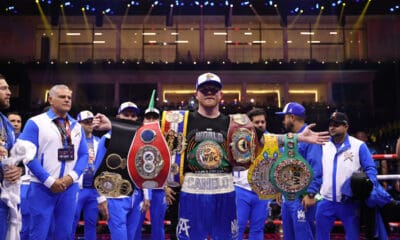
 Boxing
BoxingCanelo Álvarez Wins. Bring On Bud Crawford
The good news: Canelo vs Scull is in the books, and fans can now look forward to a showdown between Terence “Bud” Crawford of Omaha, Nebraska,...
-
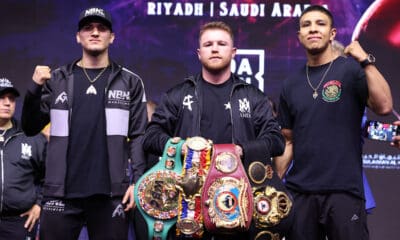
 Boxing
BoxingCanelo vs Scull: Undisputed Super Middleweight Clash Prediction
When the calendar turns to Cinco de Mayo weekend, the boxing world turns its attention to its biggest star, Saúl “Canelo” Álvarez. On Saturday, May 3...
-
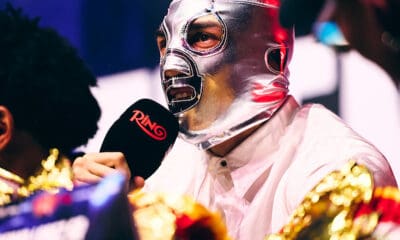
 Boxing
BoxingWords Fly from Ryan Garcia, Bill Haney at Fatal Fury Presser
Nothing rolls off the tongue in boxing like this Friday’s “Fatal Fury: City of Wolves“ card from Times Square in New York City. Ring Magazine’s historic...
-

 Worldwide
WorldwideBest Russian Boxers of All Time: The Definitive List
Russia has produced some of the best boxers in history, leaving an indelible mark on the sport. From the Soviet era to modern times, these athletes...
-

 MMA
MMATop 10 Best Pound-for-Pound UFC Fighters of All Time (P4P All-Time Rankings)
The term “pound-for-pound” (P4P) is one of the most hotly debated in MMA. It transcends weight classes, aiming to answer one simple question: Who is the...
-
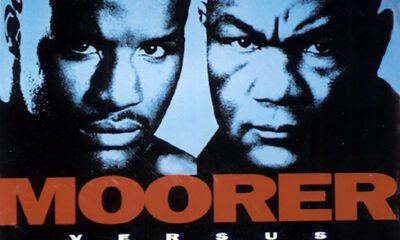
 Boxing
BoxingBig George Foreman Makes History: It Happened!
By 1991, former world heavyweight champion George Foreman’s comeback activity had slowed to one fight a year, sometimes twice. At his advanced age, after coming up...
-
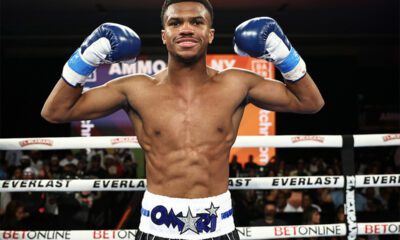
 Worldwide
WorldwideOmari Jones Making Boxing Moves in 2025
Super welterweight prospect Omari Jones of Orlando, Florida, is wasting no time getting back in the ring after his successful professional debut on March 15. Dressed...
-
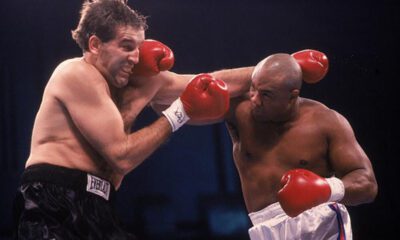
 Boxing
BoxingBig George Foreman: Return to the Ring For His Second Act
At 38 years of age and no longer looking the part of the villain in a suspense movie, Big George Foreman would return to the ring...
-
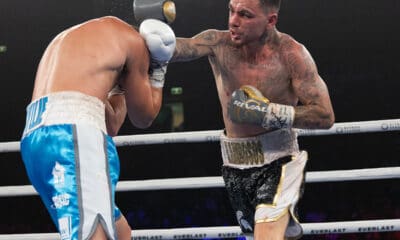
 Australia
AustraliaRecap: Kambosos Jr. Holds Off Wyllie For Win; Brown Stuns Nicolson
George Kambosos Jr. seems headed for the title fight he wants against IBF Super Lightweight champion Richardson Hitchens after pushing back a determined Jake “The Machine”...
-
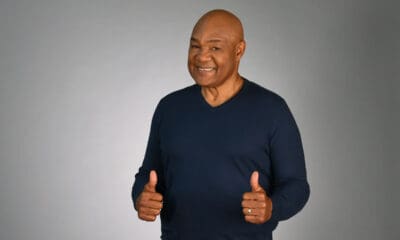
 Boxing
BoxingBoxing Legend George Foreman Dead at Age 76
Charismatic boxing champion George Foreman died Friday at age 76. The news was posted via an announcement on Foreman’s official Instagram account early Friday evening. It...
-
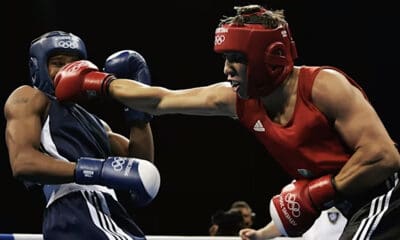
 Boxing
BoxingGennadiy Golovkin Leads Boxing’s Return to LA28 Olympics
Boxing will return to the Los Angeles 2028 Olympic Games, and much of the thanks goes to former world champion Gennadiy Golovkin. After years of uncertainty...
